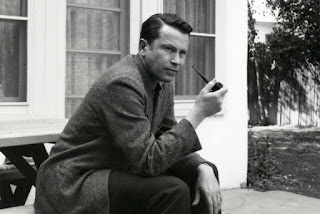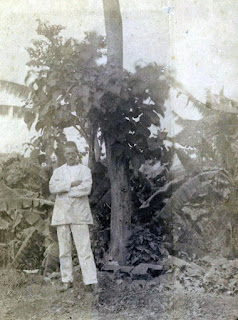
When Richard Wilbur is linked to modern Irish poetry, it is usually by way of his influence on Michael Longley and Derek Mahon, who read his work as students in the 1960s. Poetic dandy that he was, he is often cited as an exemplar of the artist who turns to poetic form as a buffer against the rougher pressures of history and politics. By extension, careful formalism such as practised by Wilbur is often seen as an a priori conservative stance. This is not necessarily the case, and Wilbur wrote his share of poems expressing anger at the Vietnam War, such as ‘On the Marginal Way’, which reaches back to the holocaust and the Spanish Civil War to channel the poet’s rage at the ‘tidings of some dirty war’, and ‘A Miltonic Sonnet for Mr Johnson’, comparing Lyndon B. Johnson unfavourably with Thomas Jefferson. When asked for a poem by a student newspaper in 1970, however, he wrote ‘For the Student Strikers’, published only after some consternation and delay. It’s not hard to understand the negative reaction it provoked:
Go talk with those who are rumored to be unlike you,
And whom, it is said, you are so unlike.
Stand on the stoops of their houses and tell them why
You are out on strike.
It is not yet time for the rock, the bullet, the blunt
Slogan that fuddles the mind toward force.
Let the new sound in our streets be the patient sound
Of your discourse.
Doors will be shut in your faces, I do not doubt.
Yet here or there, it may be, there will start,
Much as the lights blink on in a block at evening,
Changes of heart.
They are your houses; the people are not unlike you;
Talk with them, then, and let it be done
Even for the grey wife of your nightmare sheriff
And the guardsman’s son.
The poem calls for civility, respect and dialogue, while placing the responsibility for these qualities on the side of the protesters, whose anger places them outside civil norms. In their righteous indignation, they lose sight of their enemies’ humanity. (Small contextual reminder: also in 1970, four student protesters at Kent State University were killed by the Ohio state guard while protesting US bombing of Cambodia). Once they have calmed down, the protesters can drop round for some dialogue to the nearest policemen’s houses, at the risk of doors being shut in their faces (rather than, for instance, rifles being discharged in their direction). Why didn’t Arthur Scargill drop round to Ian McGregor’s house for a cup of tea during the miners’ strike? Why don’t Black Lives Matter protesters stop by their local police sheriff’s department for a friendly chat? The suggestion is comical, ludicrous even. In a political stand-off, why should it be the responsibility of the protester to accept the civilised norms of the governing class? Are these really so self-evident that a departure from them requires the policing (metaphorical and literal) of Wilbur’s poem? It is the perennial Antigone question, of why the arbiters of power and authority should be the ones to decide what constitutes civil protest and reasonable resistance to the rule of law.
The poem retains the power to provoke today. Writing this short essay, I see it was posted with a commentary on Eratosphere by A. M. Juster in 2016, who hailed its relevance against the mass erosion of civil discourse that greeted the election of Donald Trump, by which he meant the language of anti-Trump protesters. Juster has elsewhere underscored the political bona fides of Wilbur’s poem by describing its author as otherwise ‘not a conservative poet’ and ‘a poet from the far left’, which will come as a surprise to many. It’s also worth adding to the mix here that I have interacted quite a bit, with A. M. Juster on the internet, who is a regular and thoughtful commentator on poetry on twitter. Our discourse has certainly remained within the terms of the concept I am trying to unpick and unpack here, the ‘civil’.
Wilbur is not alone in responding to political conflict in these terms. A striking poetic disagreement from this same period occurred between Denise Levertov and Robert Duncan. The former had begun to write protest poems against the Vietnam war and the latter, whose politics were of a libertarian left/anarchist hue, objected. He found them didactic and brow-beating. The two exchanged many letters on the subject and their friendship suffered badly. Duncan’s attitude is probably best expressed in his oft-quoted suggestion that ‘The poet’s role is not to oppose evil, but to imagine it.’ One poem that especially riled Duncan was ‘Tenebrae’, with its description of suburban Republican wives, whose distance from social conflict draws the disapproving comment from Levertov that ‘They are not listening’. Evidently feeling got at, or accused of not tuning in to the correct radical frequencies, Duncan tells Levertov that ‘I am listening and hearing more than you consider it legitimate to hear’. He insists that the proper task of the artist is to follow where his art leads him, and not to presume artistic merit will lie where political virtue signals its presence. He is accusing Levertov, in contemporary parlance, of ‘virtue-signalling’ – a problematic objection, I find, when shadowed by what we might call reverse virtue-signalling, in which a conservative reader insists that political engagement can only be bad for a poem, leaving all virtue on the side of the unexamined status quo. This is certainly not Duncan’s position, though his actual views about the climate of the Johnson-era US are perhaps better illustrated by his decision, in 1968, to stop publishing for fifteen years, a promise he duly honoured.

Which brings me to the case of George Oppen. Though sharing with Wilbur the experience of wartime combat in Europe (Oppen narrowly avoided death in a foxhole in Alsace), he had followed a radically different path and career from the younger poet. After the publication of his elliptical debut Discrete Series in 1934 and association with the Objectivist poets, chiefly Reznikoff and Zukofsky, Oppen responded to depression-era US politics by joining the Communist party and giving up poetry, becoming a labour activist instead. After the war, the Oppens came under political suspicion and moved to Mexico, where George worked as a carpenter. Newly returned to the US, he was 54 when he resumed his poetic career with The Materials. Unlike the much-garlanded Wilbur, Oppen was no one’s idea of a career poet, and reacted to his surprise Pulitzer win in 1968 by, for his own eccentric reasons, striving to give as few poetry readings as possible. Yet for all Oppen’s record as a political activist, he makes for a very uncomfortable political poet, as judged by contemporary standards. Critics who express scepticism of political poetry will often identify it with sloganeering, of the kind one might write on a placard at an anti-war protest. Oppen had no sense of such a conception of poetry. He was deeply puzzled by the Beats and other expressions of 60s counterculture. For Oppen, the poem is not a site of opinionation, but a site of witnessing, of hospitality to available reality. As David Herd writes: ‘Oppen would have liked a poetry totally without the inflections of voice, a poetry that understood its objective to be an almost silent, largely impersonal rendering of things.’ Oppen was fascinated by Heidegger, and can often appear to strive for a state of mystical Dasein, or revelation of ‘being-in-the-world’, in his poems. The contrast between Wilbur and Oppen is most obviously apparent on the level of the individual line, and what each poet thinks it is, and can do. Oppen does not use rhyme, and has no real use for the pentameter line. His line-breaks are, to a dispassionate observer, often arbitrary and jagged, serving to thrust into prominence the object of contemplation.
Nevertheless, politics are abundantly present in Oppen’s work. The poem that has prompted me to write this note, ‘The Book of Job and a Draft of a Poem in Praise of the Paths of the Living’, marks a particularly painful encounter with 60s politics, in the form of the murder in Mississippi of three civil rights activists, James Chaney, Andrew Goodman, and Michael Schwerner, engaged in voter registration (their killings form the backdrop to the film Mississippi Burning). The poem is dedicated to Schwerner, whom Oppen had known in New York, and the poem begins with an ambition to ‘name Goodman Schwerner Chaney/who were beaten not we/who were beaten children/not our/children ancestral/children rose in the dark.’ But it is they, not we, who have suffered,, and that bridge of difference is one the poem finds it tricky to cross. In his study George Oppen and the Fate of Modernism Peter Nicholls describes the poem’s tortuous composition and publication history, as Oppen circled round this problem, before its reaching a final form in Myth of the Blaze, a collection incorporated into his 1975 Collected Poems.
One basic difference between Wilbur and Oppen is the latter’s habitual dissection of syntax. In conversation with Lawrence Harvey, Beckett said he felt driven to slice up his own poetic syntax for reasons of ‘shame’, and with its stuttering sub-utterances Oppen’s poem gives every impression of an abashed inability to confront its subject and have its say. The reference to the angry ant derives from a letter of Francis Drake’s to Elizabeth I, in which he warns her that the wretched of the earth will not be patient forever but will rise up and have their vengeance:

And then there is the question of the Book of Job. Oppen’s relationship to Judaism is a huge topic, and not one I can fully ventilate here, but his reading of the Book of Job is, it must be said, pessimistic. Job has had a rough old time of it, but nothing God says approaches an apology. One reason for this, according to Oppen (waxing gnostic), is that it is not God who speaks but the demiurge, the malign god of creation. In his notes on the biblical text, Oppen gives no sense of being impressed by God’s self-defence. Up to now, Job has been the victim of a cosmic order that seems vicious and irrational. Now it is spelt out as a moral code, while retaining its violent irrationality. As Nicholls observes, drawing Blake into the discussion: Truth, we might say, falls outside of the apparent contraries of ‘moral virtue’ – it is not about theodicy, the justification of God’s ways to man, but about the material presence of the world, the creative force that speaks from out of the whirlwind, the force that, as Blake has said, creates both the tiger and the lamb and cannot be held to account for its actions. Truth is rather that ‘moment of sincerity that dislocates everything’, a sincerity, that is, that equates not to an individual’s intentions but to the actuality of the world itself.
Although God restores Job to prosperity, Oppen sees continuing violence in the moral order that he represents, just as he does in the vacuum of anarchy he has allowed to invade Job’s life. As he stresses in his notes on Job, the remarkable thing is that Job has provoked God into speaking at all, but the dignity we wish to see restored to Job comes from his own articulation of his woes, not from his accepting a restored place in the violent cosmogony of the Old Testament God. These private responses to Job find oblique expression in the poem. Here as elsewhere Oppen identifies with states of reduction, smallness, poverty, frailty, shabbiness, insubstantiality. As the ‘storm’ passes, some will survive and ‘we /the greasers’:
survivors will be tame
will stand near our feet
what shall we say they have lived their lives
they have gone feathery
and askew
in the wind from the beginning carpenter
mechanic o we
impoverished we hired
hands that turn the wheel young
theologians of the scantlings wrecked
monotheists of the weather-side sometimes I imagine
they speak
‘We /the greasers’ references a derogatory slang term for Hispanic immigrants to California, and its ‘we’/‘they’ vacilliation provides this section with its own commentary on Oppen’s solidarity with, and simultaneous separateness from, the migrant labouring communities of his adopted state. The bystanders and observers will not be sharing our testimonies of the violence done to them, nor will ‘we’ be seizing the microphone to broadcast our political thoughts. Perhaps those in the deep south will see this ineloquence as blameworthy (Levertov’s ‘They are not listening’ again), but the poem leaves it at imagining their speech, rather than recruiting them as vehicles for its indignation.
The experience of the storm leaves the survivor with a residue of ‘shame’, which ‘touches him /again arms and dis- /arms him meaning /in the instant //tho we forget //the light’, with social conflict once more ascending into a realm of ontological light and dark, revelation and concealment. A passage of landscape writing resounds to the ‘camera’s click’, a material trace of an alien, observing eye that we might (for instance) visualize as the civil rights workers recording the injustices of the deep south. The writing is, still and ever, brittle and self-fragmenting in rendering a:
tragedy so wide
spread so
shabby a north sea salt
tragedy ‘seeking a statement
of an experience of our own’ the bones of my hands
bony bony lose me the wind cries find
yourself I?
this? the road
and the travelling always
undiscovered
country forever
The poem approaches only to reject the commensurability of tragedy and the lyric vessel of the ‘statement’ it might provide. The site of colonial violence in Conrad is a Heart of Darkness, and Oppen’s description of the land as an ‘undiscovered /country forever’ echoes the jaded language of ‘civilised outrage’, while self-consciously refusing to present itself as the enlightened discoverer of what it is that drives the primal violence of American life.
The poem ends instead with an act of radical entry into its landscape and its memory, extracting from it a harsh music in which the present becomes coextensive with the past (time past is ‘not ended’) and the landscape a text we can both read and write upon. There is no ‘I’ in the closing verse paragraph, though a ‘we’ does feature briefly. More importantly, ‘in itself /of itself speaks the word’: objectivist self-sufficiency of the word is achieved at last:
mid continent iron rails
in the fields and grotesque
metals in the farmer’s heartlands a sympathy
across the fields
and down the aisles
of the crack trains
of 1918 the wave
of the improbable
drenches the galloping carpets in the sharp
edges in the highlights
of the varnished tables we ring
in the continual bell
the undoubtable bell found music in itself
of itself speaks the word
actual heart breaking
tone row it is not ended
not ended the intervals
blurred ring
like walls
between floor
and ceiling the taste
of madness in the world birds
of ice Pave
the world o pave
the world carve
thereon…
I would summarize the contrasting effects of Wilbur’s and Oppen’s poems as follows. Wilbur’s subject matter may surprise the reader, but his poem exists on a recognisable spectrum with his usual lyric poise and wit. This makes it all the more startling then that he so blithely enlists these qualities to a discourse of civility so transparently forced and unsustaining. ‘Rumoured to be unlike you’ – so it is the protesters who have a problem with difference rather than the police? The unloading of touchy difference onto the students recalls the contemporary insult of ‘identity politics’, where it is the self-engrossed womanhood/blackness/whatever of the protester that disables their capacity for reason. What of the identity politics of sameness, of the inert and monstrous Leviathan – what of the reality of murderous state violence? These concepts escape Wilbur’s poem and the available reality it conveys. I find it a finally small and cowardly utterance.
Oppen’s poem is born in private recoil from the wound of political violence and fashions from this a meditation on good and evil. How do the wronged assert themselves in the face of political evil? Is it for Oppen to give them a voice or do they speak for themselves? The poem ponders hard the conditions of its own making before entering, tentatively, the in-between state where understanding and solidarity become possible. But what it is we ‘carve //thereon’, in the poem’s lapidary conclusion, is not spelt out, remaining shrouded in the Job-like whirlwind of history. The poem ends on a note of continued scattering and loss, stating its moral imperative but alive to inadequacy and failure too. Oppen’s is the harsher poetic environment than Wilbur’s, yet strangely more welcoming where questions of politics and history are concerned, more open to the possibilities of understanding and change. It seems to me exemplary of what a modern poem can be in the face of politics and history, of the traces they leave on us, and the traces we in return can hope to leave on them.






